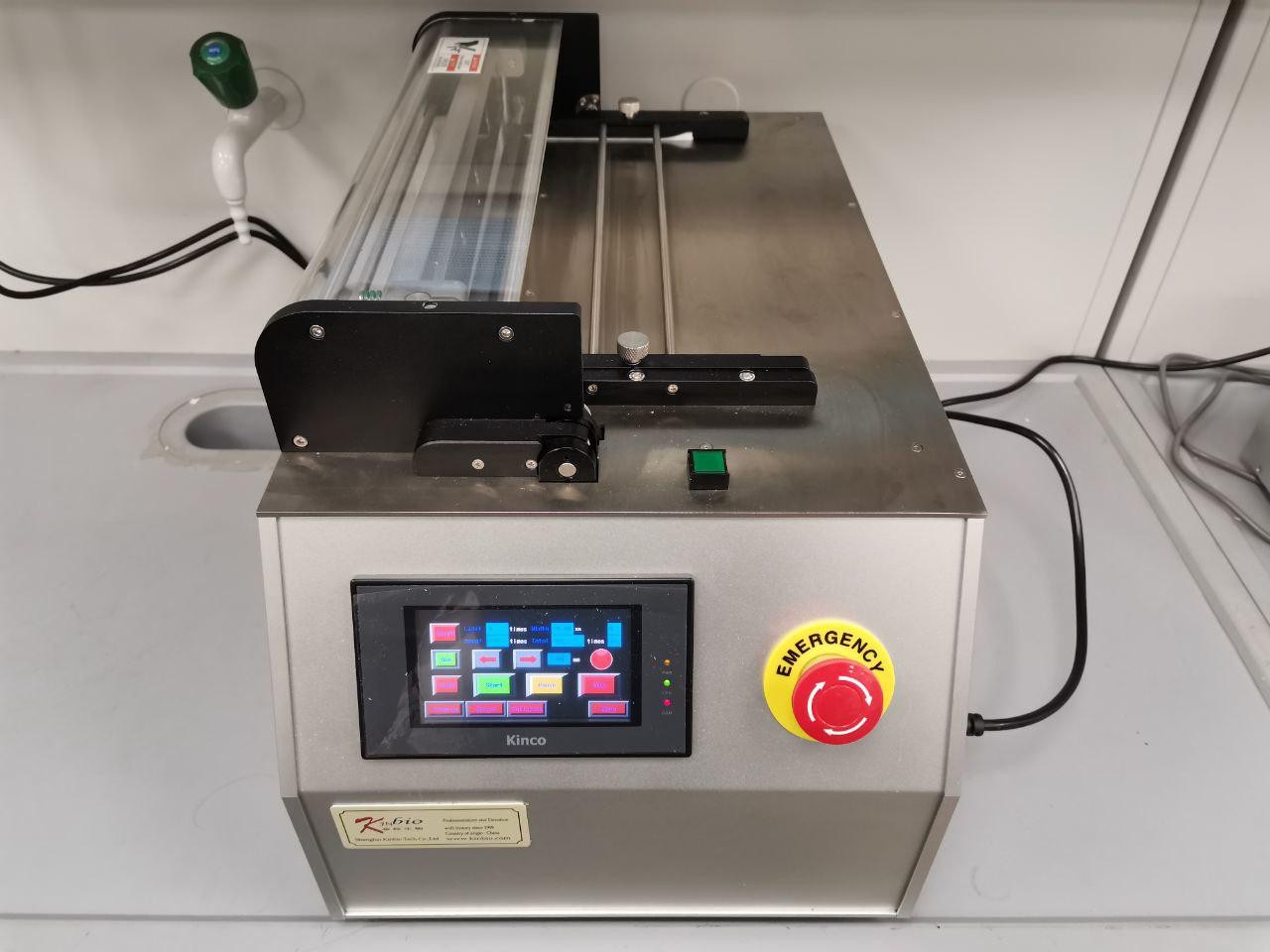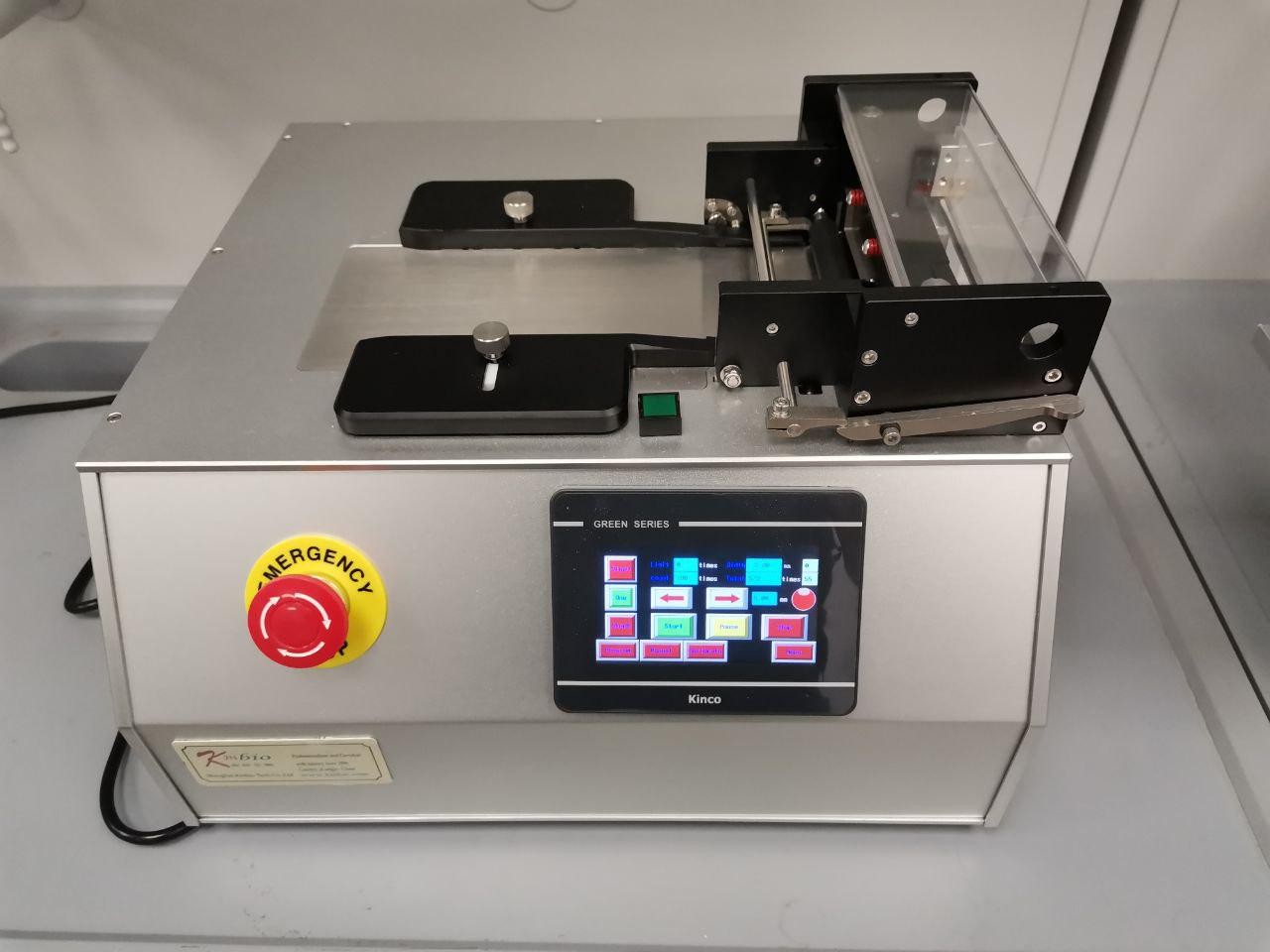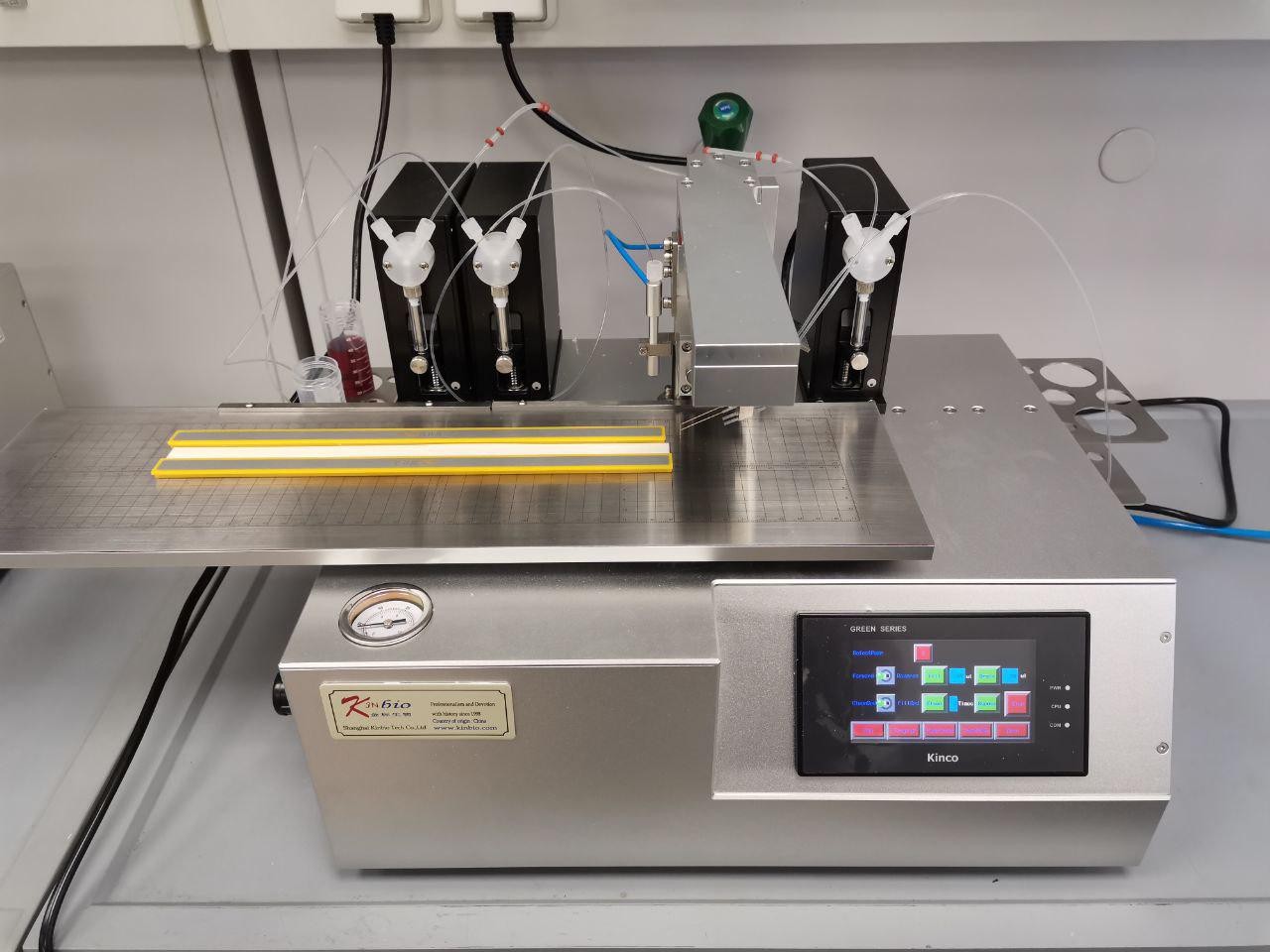University to produce COVID antibody test systems

KFU and nonprofit Research and Education Center for DNA unite efforts in this project.
“We are finishing equipment installation and hope to move to full-scale production in two weeks. However, two more months are needed to obtain a registration permit. Best case scenario, we will sell test systems starting in September,” explains Professor Albert Rizvanov, Director of the Research and Clinical Center for Precision and Regenerative Medicine.
The equipment comprises three devices: a cutting machine, a biochemical printer, and a test strip laminator.
The test visualization will work akin to a widely popular pregnancy tests, with one mark on a used strip indicating no antibodies, and two marks – the presence of antibodies to COVID.
Kazan University-produced tests will determine both IgM and IgG antibodies, so the sensitivity and accuracy will be on a sufficient level, presumes Rizvanov.
The virus antigen is to be made at the University as well. “We have deployed an in-house production for the virus antigen, a protein serving as the basis for the test system. Research is based on the blood of those patients who have been infected with COVID-19. We are in cooperation with Republican Clinical Hospital, 7th City Hospital of Kazan, and Blood Center, for which we are already conducting antibody tests to help in blood plasma transfusions for patients with severe cases of COVID,” adds the interviewee.
Source text: Larisa Busil
Photos: Rafil Khayrullin
Translation: Yury Nurmeev





